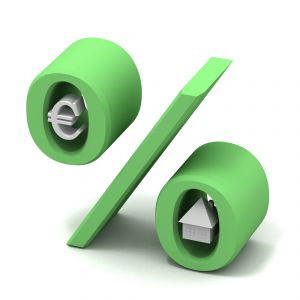
Mortgage Interest Rates – How to Find the Cheapest One
Mortgage may be the fasted and easiest way to buy a new home but just like every other loan, it involves interest rates which considerably increase the cost of a new home. Interest rates vary greatly from one type of mortgage to another as well as from lender to lender which is why it is worth to take some time to inform yourself about different types of mortgages and compare the offer between different lenders. Finding the cheapest interest rate, however, is much more challenging than it may seem at a first glance.
The cheapest interest rates are not necessarily as cheap as they appear to be. On the contrary, the “best deals” often turn out to be more expensive than seemingly the most unfavourable offers which is due to the fact that most mortgages follow the market conditions. As a result, the interest rates and with them your monthly pay offs can change dramatically if the Bank of England changes the base rates. It is possible to avoid dramatic fluctuations by opting for cap and collar mortgage for instance which has a predetermined upper and lower limit. Fixed-rate mortgage, on the other hand, does not protect you from potentially unfavourable market changes because you pay a fixed interest rate only for a certain period of time after which your interest rates automatically switch to the standard variable rate that follows the conditions on the market. Even more unpredictable is the so-called tracker mortgage which follows the base rates of the Bank of England. Having a mortgage with a variable interest rate, however, is not necessarily bad either. Mortgages with interest rates that depend on conditions on the market do not change only when the rates are rising but when they are falling as well and as a result, you can benefit a lot from taking out a mortgage with a variable rate.
Since mortgage repayment period typically lasts at least two decades, it is impossible to tell which type of mortgage will increase the cost of a new home the least. The financial markets are highly unpredictable and it often takes a lot of luck to make the most out of your mortgage. You can always decide for remortgage if you think that you can get better conditions at different lender, however, it is a lot cheaper to choose a mortgage carefully at the start. But rather than focusing on low interest rates, it may be a better idea to choose a mortgage that appears to meet your personal preferences and financial situation the most. For example, if you prefer to know exactly what your repayment will be, it is worth considering a mortgage which is not as “vulnerable” to market conditions even if it means that you will start by paying a slightly higher rate. However, if you think that you could benefit from variable rate and if you can afford to take a risk, then you should perhaps consider more flexible options. But if you are not sure which type of mortgage would be best for you, you are recommended to seek a professional advice because a bad decision will cost you much more than a fee of a financial adviser.